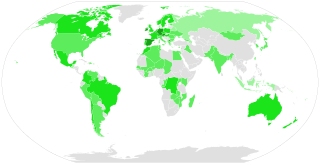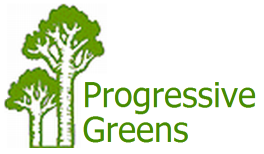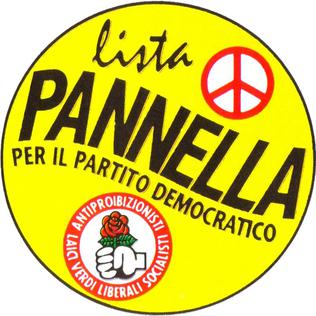Roma or ROMA may refer to:
In politics, a red–green alliance or red–green coalition is an alliance of "red" parties with "green" parties. The alliance is often based on common left political views, especially a shared distrust of corporate or capitalist institutions. While the "red" social-democratic parties tend to focus on the effects of capitalism on the working class, the "green" environmentalist parties tend to focus on the environmental effects of capitalism.

A green party is a formally organized political party based on the principles of green politics, such as social justice, environmentalism and nonviolence.

The Australian Greens, commonly known as The Greens, are a confederation of Green state and territory political parties in Australia. As of the 2022 federal election, the Greens are the third largest political party in Australia by vote and the fourth largest by elected representation. The leader of the party is Adam Bandt, with Mehreen Faruqi serving as deputy leader. Larissa Waters currently holds the role of Senate leader.
The following outline is provided as an overview and topical guide to green politics, a political ideology that aims for the creation of an ecologically sustainable society rooted in environmentalism, social liberalism, and grassroots democracy. It began taking shape in the western world in the 1970s; since then Green parties have developed and established themselves in many countries across the globe, and have achieved some electoral success.
A green party is a political party based on the principles of green politics.

The Progressive Green Party was an environmentalist political party in New Zealand in the 1990s. It was a "blue-green" party – that is, one that is economically right-wing ("blue"), rather than left-wing ("red"), as well as environmentalist ("green").

The Federation of the Greens, frequently referred to as Greens (Verdi), was a green political party in Italy. It was formed in 1990 by the merger of the Federation of Green Lists and the Rainbow Greens.
Rainbow and Greens was a Green political organization in Japan from 1998–2008. It was a nationwide network of prefectural assembly members, usually running on local platforms variously named as "living citizen network", "living club", "living cooperative" or the Rainbow and Greens 500-Member List Movement. It is a member of the Asia-Pacific Green Network. The national spokespersons for the party were Kiyoshi Matsuya, former Shizuoka Prefecture assembly member and the city councillor Mutsuko Katsura in Ibaraki, Osaka.
Rainbow Greens was a green political party in Italy.
Young Green(s) usually refers to a youth wing of a Green political party or federation thereof, or a youth organisation espousing Green principles.

The Pannella List is a liberal and libertarian association, which was also the electoral list of the Italian Radicals between 1992 and 1999, when it was replaced by the Bonino List.

The Greens are a green and regionalist political party active in South Tyrol, northern Italy. Once the provincial section of the Federation of the Greens, the party is now autonomous and often forms different alliances at the country-level, but both joined Green Europe, a coalition of green parties for the 2019 European Parliament election.
The Federation of Green Lists or Green List was a green political party in Italy. Its members included Gianni Francesco Mattioli, Lino De Benetti, Gianfranco Amendola, Alexander Langer, Enrico Falqui, Sauro Turroni and Alfonso Pecoraro Scanio. The Green Lists used the Smiling Sun symbol of the anti-nuclear movement, which was inherited by its successor party, the Federation of the Greens.

The Group of the European Radical Alliance (ERA) was a heterogeneous political group with seats in the European Parliament between 1994 and 1999. It was formed by regionalist parties from the former Rainbow Group, although its largest and dominant member party was the French Energie Radicale.
The Rainbow Group, officially the Rainbow Group: Federation of the Green Alternative European Links, Agalev-Ecolo, the Danish People's Movement against Membership of the European Community, and the European Free Alliance, in the European Parliament was a green and regionalist political group with seats in the European Parliament between 1984 and 1989.
The term green left refers primarily to a political affiliation that combines elements of green politics and left-wing politics in countries where the term is used. It is primarily a social justice and human rights oriented ideology, with an expansion in focus to the rights of other species. It is often used in contrast with center-left green parties, that attempt to reconcile their environmental goals with a capitalistic framework, and, rarely, center-right green parties, that hold anti-feminist views.
Centre-left politics lean to the left on the left–right political spectrum but are closer to the centre than other left-wing politics. Those on the centre-left believe in working within the established systems to improve social justice. The centre-left promotes a degree of social equality that it believes is achievable through promoting equal opportunity. The centre-left emphasizes that the achievement of equality requires personal responsibility in areas in control by the individual person through their abilities and talents as well as social responsibility in areas outside control by the person in their abilities or talents.

The 2020 Queensland state election was held on 31 October to elect all 93 members to the Legislative Assembly of Queensland. The Labor Party was returned to government for a third-term, led by incumbent premier Annastacia Palaszczuk. With 47 seats needed to form a majority government, Labor won 52 seats, including all but five in Brisbane, while the Liberal National Party won 34 seats and formed opposition. On the crossbench, Katter's Australian Party retained its 3 seats, the Queensland Greens picked up South Brisbane for a total of 2, Pauline Hanson's One Nation retained Mirani and independent Sandy Bolton retained her seat of Noosa.







